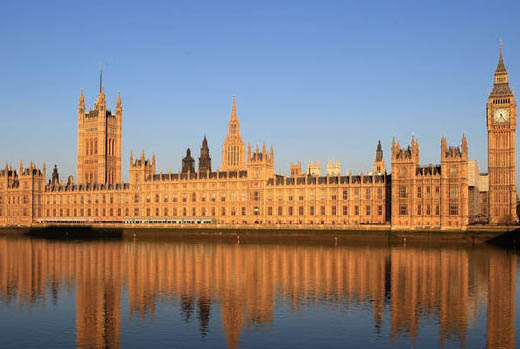
Plan A is dead. Mr Johnson, or rather his Svengali, Dominic Cummings’ ‘do or die’ election strategy is toast. The plan, to prorogue Parliament and spend five weeks campaigning to leave the EU on 31st October without a deal was designed to see off the Brexit Party. It is possible that Mr Cummings hoped that Parliament would deliver something like the Benn Act, mandating the government to seek a delay to Brexit in the event of failing to reach a deal with the EU. This would have allowed the Tories to campaign during October on a ‘people verse Parliament’ manifesto. An election campaign would have rendered any such Act null and void but Jeremy Corbyn, prevailed upon by wiser counsels, did not rise to the bait of a no confidence vote. As he digests the Supreme Court’s devastating, unanimous judgment, Mr Johnson in his more lucid moments must realize he has been comprehensively hoisted by its own petard.
It has been the shortest honeymoon for any Prime Minister. In just nine short weeks Johnson’s carefully crafted image of political triumphalism has been reduced to one of political humiliation. Having dragged the Queen into his deceitful abuse of power, the Court’s judgement should have been followed by his immediate resignation. But Mr Johnson lacks both the standards and integrity expected of the Prime Minister. He is revealed as despicable; incapable of apologising for his egregious behaviour and unscrupulously seeking to make out he is the victim. Worse, he has plumbed new depths by deliberately and repeatedly using the language of enemies and war to describe those opposing his reckless approach to Brexit. His calculated purpose is to stoke anger and divisions while shamefully claiming that his intemperate language has nothing to do with the rise of abuse and death threats to MPs.
All parties are guilty of inflaming tensions, but Mr Johnson’s increasingly inflammatory rhetoric should be a source of serious concern for all thinking people. As Prime Minister his job is to govern the whole country, not just for the minority hard Brexiters. He has broken the law, questioned the Supreme Court and now stands before MPs denying even their right to be there. Mr Johnson argues that, by seeking to honour the referendum, he is defending democracy. The truth however, is that it was the Supreme Court’s ruling that has protected democracy. According to Craig Oliver, when as his director of communications, he asked Mr Cameron for one good reason why he shouldn’t hold a referendum on EU membership he was told it ‘could unleash demons of which we know not’. As with so much of Brexit, three years on we have a much better idea as to these demons. Deplorably, Mr Johnson seems to relish or does not care about the grotesque demons he is unleashing.
Despite his bluster and mendacity both Mr Johnson and his irascible controller will have to accept that the only lawful choices now available are to either strike a deal with the EU by 18th October or seek an extension to the Article 50 exit process. Mr Johnson continues to vow that he will not seek an extension which leaves him scrambling for a deal with the EU – something for which he had not planned or prepared. All the signs are that his ideas are falling well short of anything worth serious consideration in Brussels. He has apparently told Leo Varadkar, the Irish Taoiseach, that he is willing to see agriculture and food treated as part of an ‘all-Ireland economy’ based on EU rules after Brexit. Not only does this proposal not deal with the issue of a hard border but also in offering Northern Irish food industries a superior post-Brexit position to that of their counterparts in Great Britain he is stoking discontent – particularly in Scotland.
The most likely outcome remains a failure to agree a deal followed by the EU granting an extension to allow the government to go back to the voters. If this is done via an election Mr Johnson will almost certainly have to compete with the Bexit party for the hard leave vote. Despite having forsworn such a move he might yet seek a pact with Mr Farage but this is no guarantee of a majority for the Tory party. Indeed, it reinforces the likelihood post the election of a Tory minority government relying on the support of the Brexit party and the DUP. I doubt this is the type of ménage à trois that Mr Johnson ever dreamed of and like all such arrangements is likely to end in tears. More to the point it would not bring the Brexit debacle to an end.
Given this realpolitik Mr Johnson’s behaviour is not only inexplicable but also politically very stupid. In a minority government Mr Johnson will only make headway with cross party support as well as the goodwill of the EU. To date, his modus operandi – displaying a casual disregard for the truth, the rule of law and common decency – has only served to confirm fears of his trustworthiness and strengthened the working relationships between opposition parties. If they were ever minded to give him the benefit of the doubt, EU leaders now know that he cannot be trusted to keep any promises he might make about the future relationship between Britain and the union. Moreover, they can see that he commands little respect across Parliament.
His ill-chosen and combative language has increased the likelihood that the opposition parties might now be prepared to form a caretaker government, and quite possibly a coalition government after an election. In the unlikely event that Mr Johnson secures a deal this new found – albeit fragile – rapprochement amongst opposition parties increases the likelihood that Parliament will demand a referendum offering the choice of the deal or remain. If he fails to reach a deal Parliament must finally bow to the inevitable and call a second referendum before an election.